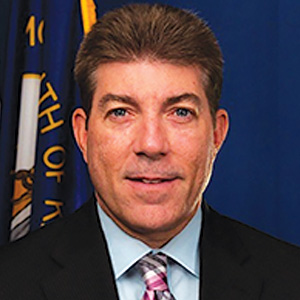The fine for violating AB5 is up to $25,000 per violation. It’s unclear whether it applies to people who aren’t California residents, but who wants to find out?
California sometimes affects Kentucky in important ways. One good example is a recent case about California’s AB5 rule in which an appeal against AB5 failed, and the U.S. Supreme Court denied cert. (What does it mean to be denied cert? Fewer than four Supreme Court justices thought the ruling merited a review.) Oregon and Washington are considering copying California and passing similar rules.
AB5 classifies independent trucking owner-operators as trucking company employees. It replaced the 11-prong Borello test that had been in effect since 1989 with a three-prong test:
- The worker is free from the control and direction of the hirer in connection with the performance of the work.
- The worker performs work that is outside the usual course of the hiring entity’s business.
- The worker is customarily engaged in an independently established trade, occupation, or business of the same nature as the work performed for the hiring entity.
From the trucking industry perspective, prong B is the problem. Carriers can avoid prong B in three ways: by converting independent contractors to employees, replacing them by hiring new drivers, or going through a brokerage they create or use, where the broker still has to satisfy the ABC test.
The fine for violating AB5 is up to $25,000 per violation. It’s unclear whether it applies to people who aren’t California residents, but who wants to find out?
Upset self-employed truckers at the Port of Oakland protested the new rule with a multiday blockade. The North Bay Business Journal wrote a story about the blockade that appeared Aug. 9, 2022. The story called AB5 “crazily poorly conceived” and said the blockade ended because truckers couldn’t afford to lose more income and didn’t want to be arrested. It also said AB5 benefits “powerful unions,” not workers.
Like many other people in the trucking industry, I was disappointed when the U.S. Supreme Court decided not to review the AB5 ruling. Everyone in the transportation industry has struggled with supply chain issues for a while. AB5 makes supply chain issues worse because it complicates business relationships and forces companies and truckers to redefine how they do business instead of allowing them to focus on their job and move goods from point A to point B as efficiently as possible. The California Trucking Association even compared the bill’s passage to pouring gas on a fire. That’s quite a comparison!
However, AB5 also has other problems. People have called AB5 the “gig worker” bill, and it was intended to protect app-based drivers who work for companies like Uber and Lyft. Instead, it has created problems in other industries. The trucking industry is one; musicians and journalists are also affected. It’s telling that some professions and occupations are exempt, such as lawyers, medical professionals, financial professionals such as accountants and financial advisers, engineers, real estate agents and insurance agents.
Unfortunately, the courts have decided that AB5 covers all independent contractors involved in transportation. Nailing down the specifics for this too-vague ruling will have to be done through the court system. I think trucking efficiency will continue to suffer, and it could change the trucking industry across the nation.
People predict AB5 will make remaining independent something that is prohibitively expensive. An employer-employee business model is different from a model using motor carriers and owner-operators. Shifting from one model to the other will be expensive and burdensome.
California owner-operator partnerships are eyeing their options. Some may move their businesses; others may choose not to haul loads if they start in California.
We support other associations, like the California Trucking Association, which oppose AB5 because of the potential damage it has already caused. I want to ensure it affects our association’s members as little as possible.
As always, it is my honor and privilege to be KTA’s president. If you have questions or concerns about AB5, please don’t hesitate to get in touch with me. Let’s work together and protect our industry.








